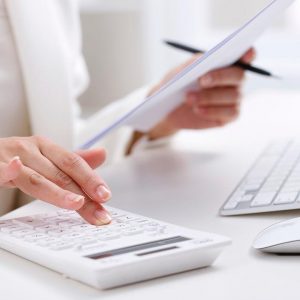Эта запись также доступна на: Russian
French
Portuguese (Brazil)
In Russia there has long been such a concept as “self-employed”. The tax, according to the legislation, should be paid by every working person, but many citizens live “on free bread” and do not worry about tax deductions. To get more money into the state coffers, the government is introducing a new law that will be in effect as early as January 1. It defines additional rights and responsibilities for everyone who receives a salary within the country. Below we take a closer look at this innovation and find out its implications for the self-employed.
Definition of the self-employed and the taxes they must pay
Russian legislation has long defined “self-employment”, but for a long time there was a very limited list of professions in the document. At first, it included only tutoring, housekeeper, caregiver, nanny and cook services.
At the moment, the law provides for more than 60 types of activities, and regional bodies are free to expand it at their own discretion. The list now includes any business that sells the results of its production. The law also defines as self-employment the work as freelancers, technicians and clothing repairmen, hairdressers, photographers, operators, manicurists, etc.
According to the state registry, more than 20 million people will be able to participate in the new tax system. At the same time, only 1,300 workers independently decided to come out of the shadow and file a tax return. The government expects this figure to rise significantly in a year’s time, because otherwise people will be held accountable.
Self-employment status is not provided for persons who are engaged in the resale of goods, sale of products subject to special labeling or extraction of valuable minerals. Early next year, the government plans to introduce a self-employed tax in Moscow, Tatarstan, Moscow and Kaluga regions.
Tax for self-employed citizens of the Russian Federation 2019 involves several options for deductions, depending on the kind of activity of citizens. For the provision of services or sale of goods to individuals, 3% is payable, for similar interaction with legal entities – 6%. In addition, each person will have to pay 1.25% to the RFP and 0.25% to the medical fund.
Self-employed citizens who pay regular tax contributions will have their minimum pension determined. You will have to make additional contributions to get a decent old-age security.

What happens if you don’t pay tax for the self-employed?
The essence of the tax for the self-employed is to provide a private entrepreneur with more favorable working conditions and to take the rest of Russians out of the “shadow business”. Some people will indeed find this transition beneficial, but why pay deductions when you can keep all your earnings in your own pocket?
To answer this question, it is worth referring to the current legislation and determine what awaits the persistent defaulter. When a self-employed person fails to pay taxes, the following penalties await them:
- If it is detected for the first time, the penalty amount will be 20% of the income received. At the same time, the payment must be at least 1000 rubles.
- If a person repeatedly violates the law, he is fined the full amount of profit (at least 5,000 rubles).
Thus, a businessman can work “in the shadows” and evade mandatory payments. But, if he wants to interact with his partners in peace without fear of a visit from the state authorities, he is better off filing a tax return.
Before paying tax to the self-employed, you should download the My Tax app to your smartphone and provide a passport photo. The program helps you create receipts for each service paid for and calculates the amount of taxation. If a citizen does not have the opportunity to download the application, he or she can contact the tax office at the place of residence.
It is up to each individual to decide whether and how much tax to pay. The self-employed person must compare all the disadvantages and benefits of the proposed options, and then choose the best course of action.

